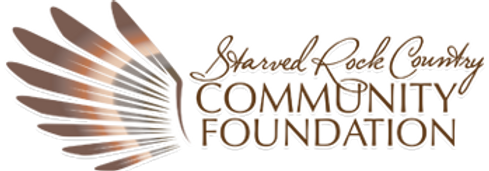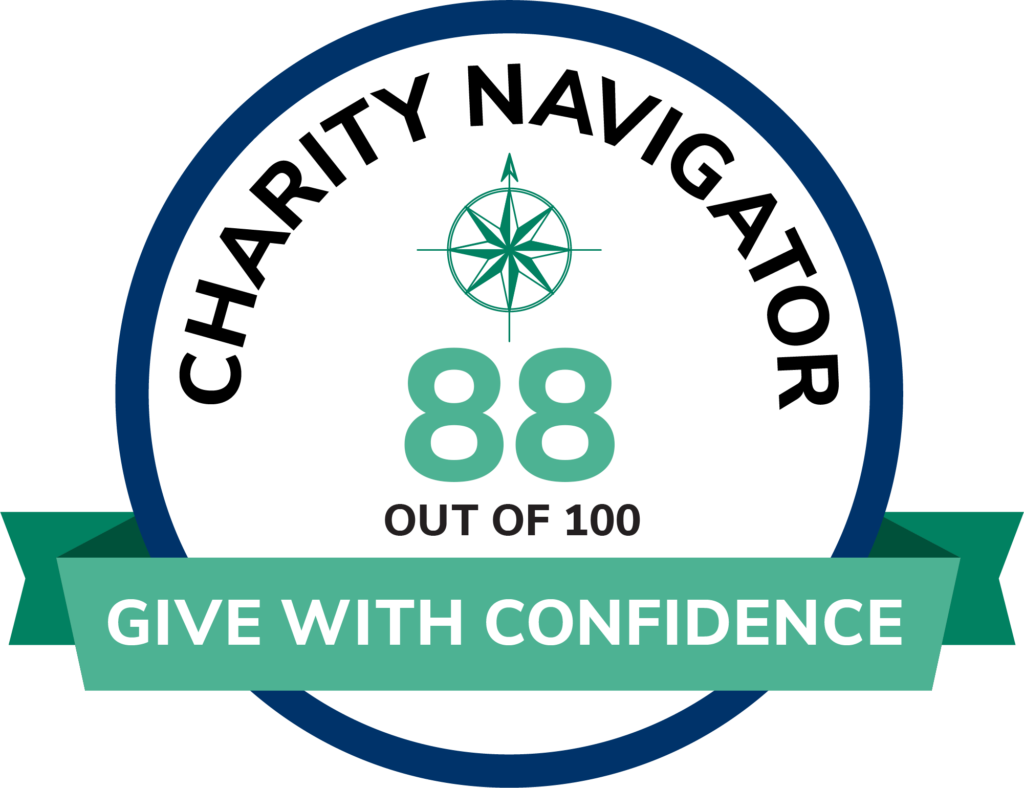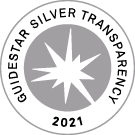The Illinois Gives Tax Credit Act
The Starved Rock Country Community Foundation (SRCCF) is honored to receive state approval as a Qualified Community Foundation (QCF) for the new Illinois Gives initiative. Illinois Gives will incentivize up to $100 million in new charitable giving over the next 5 years by authorizing a 25% state income tax credit for charitable donations to eligible permanent endowments held by the SRCCF and is being administered by Illinois Department of Revenue (IDOR).
Effective for tax years ending on or after December 31, 2025, the Illinois Gives Tax Credit Act creates a state income tax credit for donors who contribute to one or more permanent endowment funds held by the SRCCF during a taxable year. Income tax credits cannot exceed $100,000 per taxpayer, per year. The endowment funds provide charitable grants exclusively for the benefit of charities and charitable projects located in the State. Several eligible endowment funds are currently held by the Starved Rock Country Community Foundation and new endowments may be created in keeping with the SRCCF policies and procedures. The SRCCF will accept contributions eligible for income tax credits and issue Certificates of Receipts (CORs) to donors.
Endowed funds at the SRCCF provide a predictable source of general operating and capital funding for a wide range of nonprofit organizations and programs throughout the state. Sustaining local non profits for many years to come is possible by incentivizing endowment gifts through Illinois Gives. Those gifts provide a steady stream of income to greatly benefit non profit organizations providing vital services and strengthening communities.

Changes to federal tax laws since 2017 reduced incentives for charitable contributions, resulting in both fewer donors and donations nationwide. Illinois Gives will help reverse that trend in Illinois. The Illinois Gives Act leverages four private dollars for every one state dollar and represents a historic investment in the nonprofit sector.
Taxpayers eligible for Illinois Gives include individuals, corporations, partnerships, trusts, and estates. For individual taxpayers, Illinois Gives provides new tax relief for those who do not itemize their taxes. In enacting Illinois Gives, the State of Illinois recognizes that nonprofit businesses, which collectively employ 11% of our workforce, are vital contributors to our economy.
The process
At a glance
- 1. Apply to make a contribution to a QCF through MyTax Illinois.
- 2. Receive a Contribution Authorization Certificate (CAC) from IDOR through MyTax Illinois.
- 3. Make the contributions to the QCF within 10 business days after receiving the CAC.
- 4. After receiving the contribution, the QCF will confirm receipt within 30 business days and a COR will be created and issued to you through MyTax Illinois.
- 5. After receiving a COR, you may claim the credit on your income tax return.
For more information and specific details regarding
The Illinois Gives Tax Credit Act
The Illinois Gives Tax Credit Program
Overview
A permanent endowment is a fund which is kept in perpetuity, with only its earnings providing regular operating support and funding for charitable projects. Other than investing, the Starved Rock Country Community Foundation (SRCCF) will not use any of the donated money from cash, checks, credit cards, stock shares or liquidated property. The SRCCF will use only the earnings that it receives from the investment of the donations.
To qualify for the Illinois Gives Tax Credit Program, the funds in a SRCCF permanent endowment must:
- provide charitable grants exclusively for the benefit of residents of the State or charities
and charitable projects located in the State; - exist into perpetuity;
- have an annual spending rate based on the SRCCF spending policy; currently 4%; and
- not be a Donor Advised Fund (DAF).
No. It is only for Illinois state income tax.
No. If you pay Illinois income tax, you can claim the tax credit.
Beginning with tax years ending on or after December 31, 2025, Illinois taxpayers who are approved to participate in the Illinois Gives Tax Credit Program can claim a state income tax credit in the amount of 25% of their total qualified contributions made to one or more permanent endowment funds held by the SRCCF during a taxable year. Income tax credits cannot exceed $100,000 per taxpayer, per year.
Example: A taxpayer makes a qualified contribution of $10,000 to an approved QCF. The taxpayer will be eligible to claim a $2,500 income tax credit.
IDOR can issue up to $5 million in tax credits per calendar year (25% of the $20 million maximum donation amount). A maximum of $750,000 in tax credits per calendar year can be issued by the Starved Rock Country Community Foundation.
Generally, credits shall be awarded on a first-come, first-served basis. However, 25% of the annual credit amount is reserved for contributions considered “small gifts”. For the purpose of the Illinois Gives Tax Credit Program, “small gifts” are gifts of $25,000 or less. If a taxpayer is trying to make a “large gift” donation but 75% of the total eligible contributions for the year have already been made in gifts larger than $25,000, the request will not be accepted. Only “small gifts” contributions will be accepted unless the total credit maximum has been reached.
Taxpayers with an active income tax account must apply online to IDOR for approval to make contributions through the free online tax portal, MyTax Illinois. Approval is granted automatically as long as the thresholds outlined in the Illinois Gives Tax Credit Program have not been met.
Example: A taxpayer files an online application intending to contribute $100,000 to Starved Rock Country Community Foundation, an approved QCF with IDOR. As long as the SRCCF has not met its maximum donation amount, the taxpayer will receive a Contribution Authorization Certificate (CAC) from IDOR authorizing the $100,000 contribution to the SRCCF, which equates to a $25,000 tax credit.
Important: Taxpayers must have a registered MyTax Illinois account to apply for the credit and to receive a Certificate of Receipt (COR). A taxpayer wanting to apply for tax credit approval is encouraged to create a MyTax Illinois account as soon as possible to avoid any processing delays. For individual taxpayers, it can take between 7-10 days for the MyTax Illinois account to be set-up.
The Illinois Gives tax credit application for individual and business taxpayers was effective January 1, 2025.
Important: Taxpayers must have a MyTax Illinois account in order to apply for the credit. To receive a tax credit for a contribution, the payment must be received by the Starved Rock Country Community Foundation by the last day of your filing period and the SRCCF must confirm receipt of the contribution.
After a taxpayer has applied and been approved for an Illinois Gives tax credit, taxpayers at issued a Contribution Authorization Certificate (CAC). Within 10 business days, the taxpayer must provide SRCCF with their contribution to earn a valid credit.
Please note: If a CAC is requested with less than 10 business days left in the year, the payment must be received by SRCCF by December 31st.
Important: Taxpayers must have a MyTax Illinois account in order to apply and receive a Contribution Authorization Certificate (CAC) for the credit.
After receiving the contribution, the SRCCF must confirm the contribution within 30 business days of receiving it for the income tax credit to be valid. After confirmation, a Certificate of Receipt (COR) is automatically created and issued to the taxpayer through MyTax Illinois. Once the taxpayer receives a COR, the taxpayer must claim the credit on that year’s income tax return regardless of whether the taxpayer has an income tax liability that year or not.
Any credit amount that exceeds a taxpayer’s tax liability for the year in which they claimed the credit may be carried forward and applied to their tax liability in the subsequent five taxable years. Credits are applied to the earliest year for which there is a tax liability. Credits cannot be carried back to a prior tax year.
Please note: Taxpayers must apply to receive an Illinois Gives tax credit for each donation separately. If claiming unused credits from a prior year, approval is not required.
Individuals filing a joint return are each allowed to claim a credit they themselves have received, which may not exceed $100,000. A joint filed return may not claim more than $200,000 in Illinois Gives credit.
Example: Two married individuals contribute money to a fund. One of the married individuals, Individual 1, contributes $500,000 while their spouse, Individual 2, only contributes $200,000. The couple decides to file a joint return. Only $400,000 of Individual 1’s contributions are eligible for a credit, which equates to a credit of $100,000 (the maximum amount a taxpayer may earn in a year). The maximum credit allowed to be claimed on their joint return would be $150,000, which consists of the $100,000 of credit for Individual 1 and Individual 2’s credit of $50,000 ($200,000 multiplied by 25%). The extra $100,000 in contributions that Individual 1 made to a fund was not eligible for an income tax credit under this Act and therefore could not be claimed on the joint filed return.
Yes. Taxpayers may apply for a Contribution Authorization Certificate (CAC) up to 15 business days after donating to the SRCCF. However, the donation and the CAC must be in the same calendar year.
Important: Making a contribution prior to applying for a CAC does not guarantee the donor will receive an income tax credit. Multiple factors may result in the donation not being eligible for the credit (e.g., the Illinois Gives tax credit limit has been met, donor has earned the maximum amount of Illinois Gives tax credits, or the SRCCF has reached its maximum amount of eligible contributions, etc.).
The mission of the Starved Rock Country Community Foundation is to connect people with causes that matter. Created in 2015, the SRCCF has received more than $7M to improve the lives of residents of the Starved Rock Country community; primarily those living in LaSalle, Bureau, Putnam, Lee, Marshall, and Livingston counties, by providing grants, scholarships, and disasters funds. Donations made to permanent endowment funds through the Illinois Gives Tax
Credit Act must be used by the SRCCF to provide financial assistance to charitable, cultural, and other non-profit organizations located in Illinois.
An initial donation to the SRCCF may not be spent because the permanent endowment funds are intended to exist in perpetuity. Instead, the SRCCF uses the earnings that it receives from the investment of the endowment as required by the Illinois Gives Tax Credit Act, stipulates that the endowment fund must have an annual spending rate (also known as a charitable payout) not to exceed 7% of their total assets. The current annual spending rate at the SRCCF is 4%.




